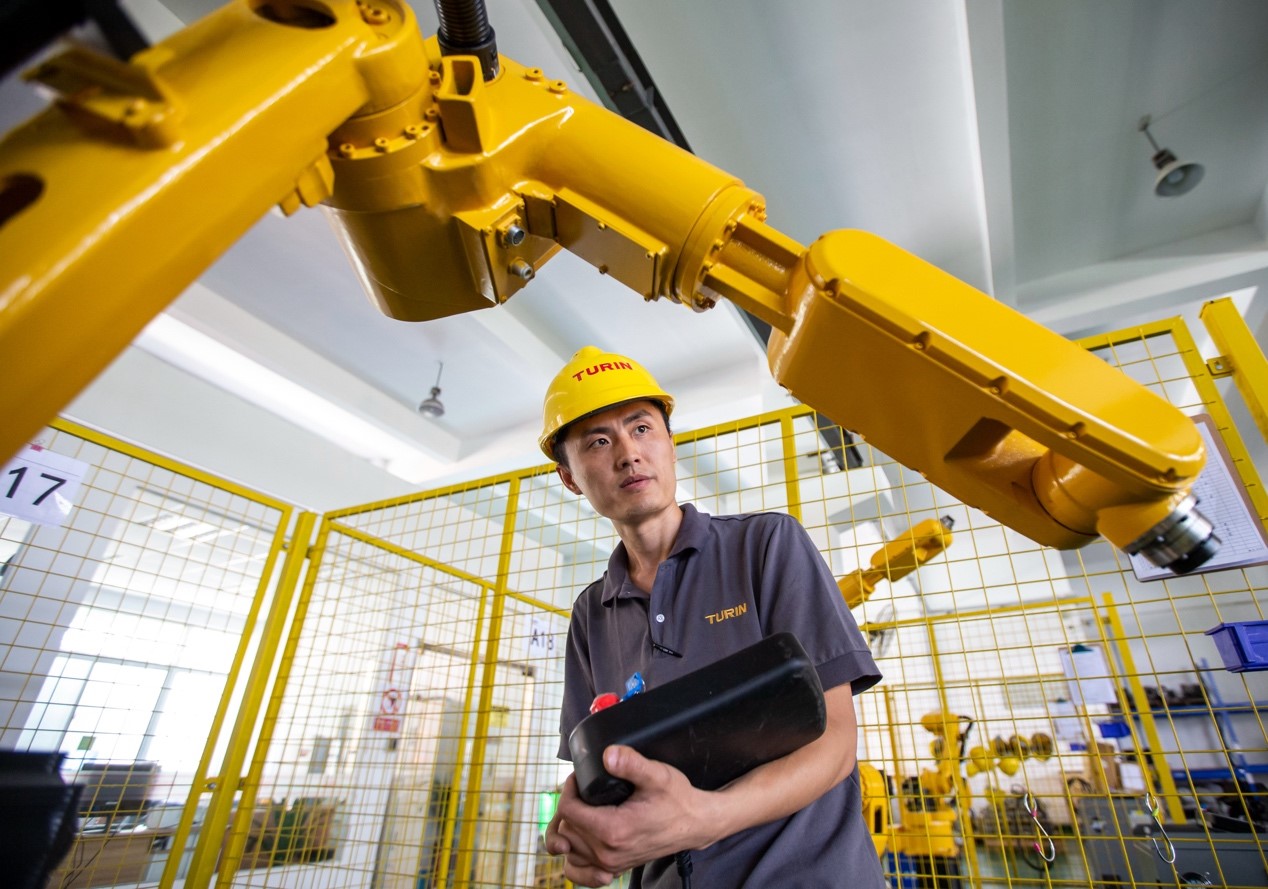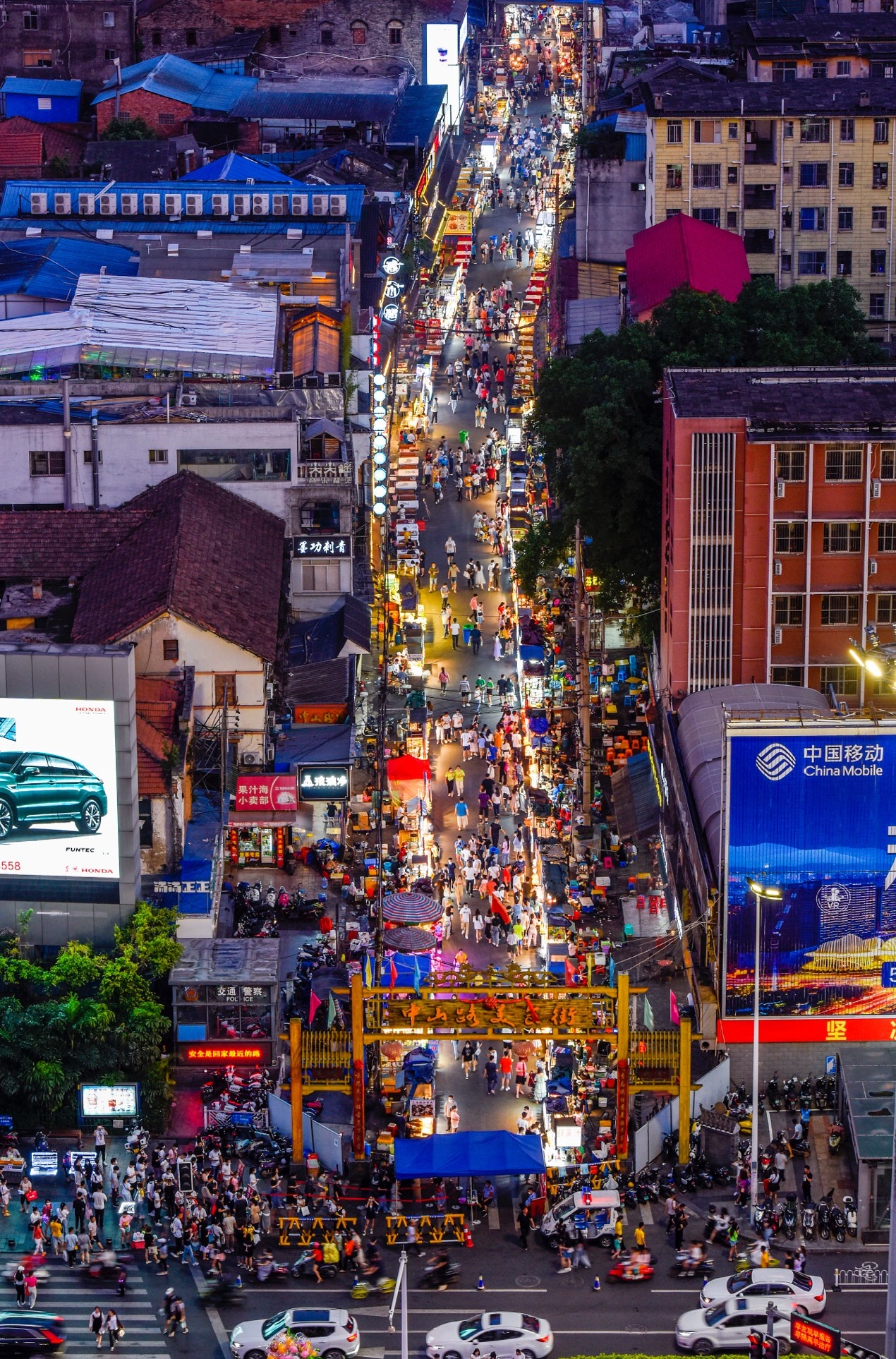Countries shall make more contribution to stabilizing global economy

An employee of Chinese AI Robot company Turing Robot located in Hai'an Economic and Technological Development Area, east China's Jiangsu province debugs an industrial robot, June 8. Photo by Zhai Huiyong, People's Daily Online
The in-depth development of globalization and the evolution of global division of labor have placed China on an important position in the global industrial and supply chains. By quickly curbing the spread of the pandemic and implementing region-specific and risk-based resumption of work and production, the country rendered important support for the world to fight the virus and made vital contribution to safeguarding the stability of the world economy.
As the only country in the world that obtains all the industrial categories listed in the United Nations industrial classification, China enjoys comprehensive competitiveness in industrial supporting capacity, infrastructure and human resource and plays a vital role in stabilizing the global industrial and supply chains.
The sudden outbreak of the novel coronavirus pneumonia has made the short supply of medical materials an urgent task for countries. China, ensuring strict implementation of containment measures at home, has been doing its best to export medical materials, and thus maintained the openness, stability and security of the global industrial and supply chains.
According to a white paper on China's battle against COVID-19 recently issued by the country's State Council Information Office, from March 1 to May 31, China exported protective materials to 200 countries and regions, among which there were more than 70.6 billion masks, 340 million protective suits, 115 million pairs of goggles, 96,700 ventilators, 225 million test kits, and 40.29 million infrared thermometers. Such firm support indicates the vital role played by China in the global industrial and supply chains.
China's achievements in coordinating epidemic prevention and control with economic and social development also attracted worldwide attention. By the end of April, 99 percent of companies of designated size – with a revenue of more than RMB 20 million per annum – had resumed operations, as had 88.4 percent of micro, small and medium enterprises. Construction of over 95 percent of major projects across the country had resumed. Besides, 76.6 percent of the 8,200 surveyed foreign-funded enterprises in China powered-on over 70% of their production capacity.
By quickly controlling the pandemic, China has injected strong resilience and stability into the national and even global industrial and supply chains, which well explains the incomparable safety of China's industrial chain. Tetsuro Homma, head of China and Northeast Asia region, Panasonic Corp, noted that China, as an important link on the global industrial and supply chains, boasts strong domestic demand, open business environment and outstanding human resource. The "world factory" is irreplaceable, he added.
With a population of 1.4 billion, China is a giant "world market" that expands huge growth potential for global enterprises. The Chinese economy enjoys strong resilience and huge potential, so the momentum maintaining long-term economic growth won't be changed by the temporary impact from the disease. It is a fact recognized by all.

A food street in Nanning, south China's Guangxi Zhuang Autonomous Region is crowded, June 7. Photo by Peng Huan, People's Daily Online
As of now, more than 90 percent of the planned exhibition area of China International Import Expo (CIIE) 2020 has been reserved by exhibitors from across the world. According to the 2020 American Business in China White Paper issued by the American Chamber of Commerce in China (AmCham China), most American enterprises are optimistic about the Chinese market, saying it is worth long-term and strategic investment. They are also considering expanding their investment in China. As the world heads into what may be its worst crisis since the Great Depression, two glimmers of hope are emanating from China, said the Financial Times in an editorial.
China's firm steps of opening-up and in-depth integration into the global economy are laying a solid foundation for the country's future position in the global industrial and supply chains.
The COVID-19 pandemic altered the pattern of economic globalization, but not the general trend of economic integration. As the mankind shares a same future, it's both unwise and unrealistic to cut the global industrial and supply chains.
As what World Trade Organization (WTO) Director-General Roberto Azevedo said, no country is self-sufficient, no matter how powerful or advanced it may be. The right way to deal with the impacts on the supply chain is to enhance international cooperation and coordination, as well as to ensure stably supply of products and maintain normal operation of global trade, the WTO head remarked.
The pandemic proves that to reinforce global cooperation and contribute to the stability of world economy can help countries get through difficulties with common development.
When countries around the world are gradually resuming production and work, people are starting to realize that only conforming to the general trend of economic globalization is the right approach. To make global industrial and supply chains unimpeded, fill the gaps obstructing global economic progress, and revitalize the world economy is a common aspiration and serves the wellbeing of all the people in the world.





